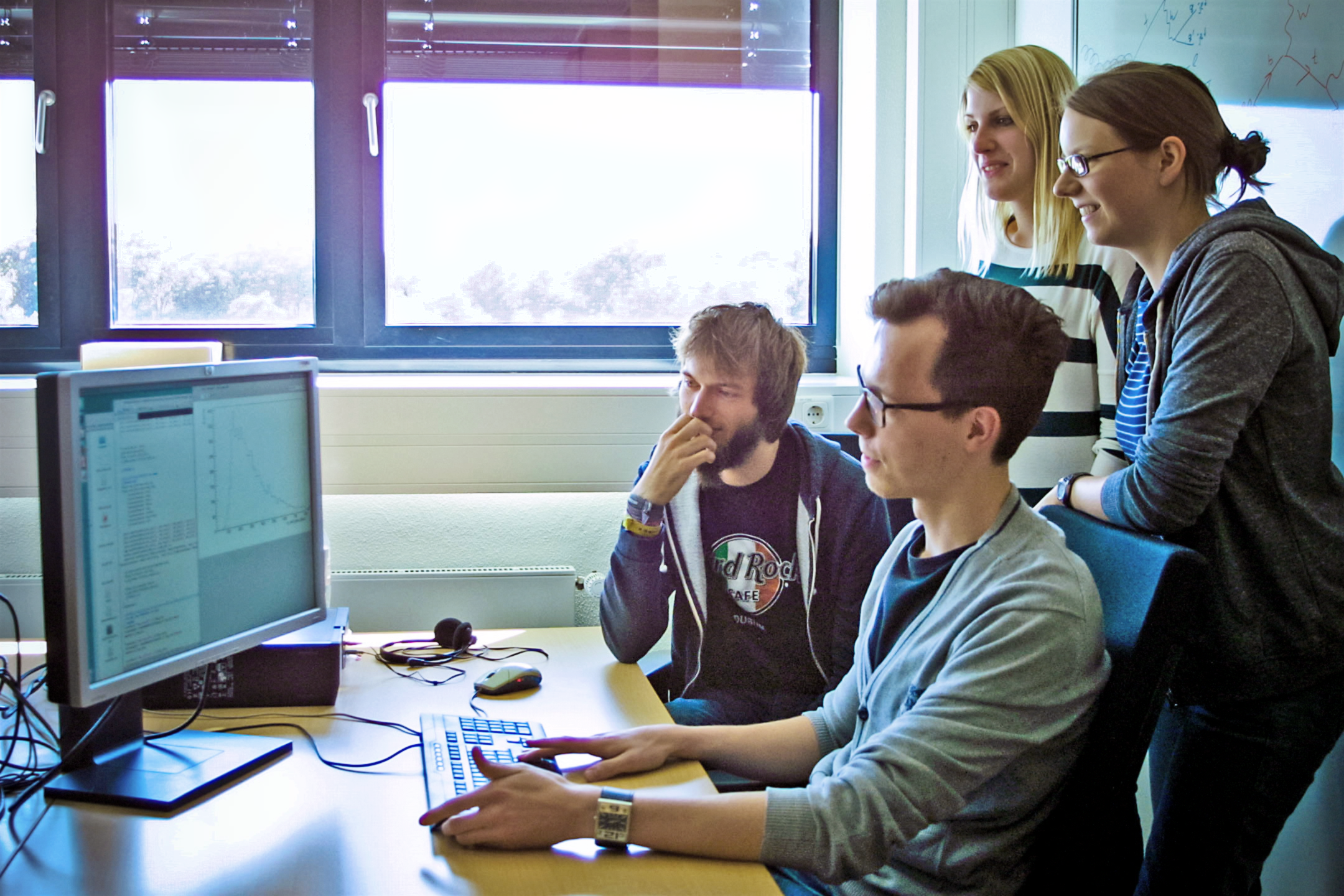Dortmund students work with ATLAS data
29 September 2016 | By

The ATLAS Open Data platform is inspiring new ways to teach high-energy physics. Universities can incorporate the data into their curriculum, giving their students hands-on analysis experience and introducing them to the world of research.
Dortmund is the first university to use ATLAS Open Data in this way. During the current semester, an 8-hour lab course has been offered to first-year Master’s students. “It has been quite a success,” says Kevin Kröninger, ATLAS member and supervisor of the new lab course at Dortmund. “Students were pretty excited to see it added to the roster, and have been eager to enrol.”
“During the course, students search for new physics signals, which would show up as a resonance over Standard Model top-antitop production,” says Sonja Bartkowski, the main developer of the course. “Using simulated data, they can identify the key variables that discriminate between signal and background. They then apply these selections to real data.”
“Three groups of students have already attended the new lab course,” says Johannes Erdmann, who collaborated with Kevin and Sonja. “Until now, the response has been extremely positive, but we are gathering as much feedback as possible in order to make further improvements.”
Other universities can follow in Dortmund’s footsteps using the ATLAS Open Data platform, which was launched in July 2016 in parallel with the data release. The platform provides all the tools that students need to start their own analysis. Complete analysis packages are freely available; in addition to the data, they include visualisation and analysis software, clear instructions, and worked examples.
The aim of ATLAS Open Data is to give students a realistic idea of what it means to be a physicist. “The datasets have been simplified to allow easier understanding,” says Susan Cheatham, ATLAS member with University of Udine and a developer of the Open Data website. “This allows students to dive straight into the analysis.” In this way, they can have a taste of real-life research.
If you are interested in developing a course to engage your students in particle physics research, visit the ATLAS Open Data website and get started now!



